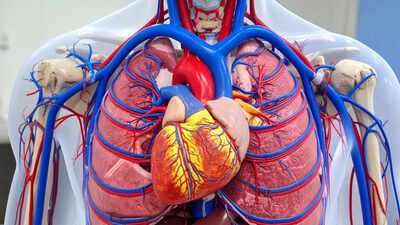Forget expensive gym memberships, protein powders, or fitness fads. Sometimes, the simplest habits offer the greatest benefits. Cardiologist Dr. Shailesh Singh recently went viral for explaining the power of daily walking, emphasizing how small, consistent efforts can dramatically improve heart health, fitness, and longevity. His advice resonates because it’s practical, cost-free, and scientifically backed. According to Dr. Singh, a single short walk may seem insignificant, but repeated daily, it compounds into life-changing health benefits. By making walking a regular habit, anyone can strengthen their heart, improve energy, and protect against chronic diseases—all without breaking the bank.
Swap 30 minutes of screen time for a walk to strengthen your heart
Dr. Singh highlights that tiny, consistent actions have an exponential impact over time. He recommends tracking walks on a calendar and marking each day with an X. Seeing a streak grow naturally motivates the brain to maintain the habit. This visual reinforcement taps into psychology, creating a sense of accomplishment that makes skipping a day feel like breaking a personal commitment.
He also pointed out that people often spend hours scrolling social media, watching OTT platforms, or engaging in online arguments, yet claim they don’t have time to exercise. Swapping just 30 minutes of screen time for a walk, cooking a wholesome meal, or sleeping earlier can do far more for your heart than any likes, comments, or views ever will.
Walking, mindset, and habits: The simple formula for lifelong health

One of Dr. Singh’s favorite strategies is the “commitment device.” By scheduling a walk with a friend or family member, canceling becomes socially awkward, but walking requires minimal effort. This subtle psychological shift makes healthy choices easier and unhealthy ones harder.He also encourages a mindset change: stop thinking “I have to walk” and start saying “I get to walk.” Framing movement as a privilege rather than a chore rewires behavior. Millions of people worldwide can’t walk due to age, illness, or disability, and seeing it as a gift enhances motivation and enjoyment.Dr. Singh compares walking to compound interest. A single walk may feel like a tiny deposit, but repeated daily, it accumulates into substantial “health wealth” over time. Skipping a day is like a minor withdrawal, but consistent effort ensures the balance grows steadily.Even a home gym worth Rs 10 lakh cannot replace the benefits of simple daily activity—like climbing four flights of stairs—or eating a wholesome, traditional meal. Overcomplicating health with expensive equipment or supplements often masks procrastination in fancy packaging. The message is clear: consistency and simplicity outperform flashy fitness trends.
Walking benefits for heart health

Research supports Dr. Singh’s advice. According to the National Library of Medicine, even small increases in daily walking significantly improve cardiovascular health. Short-term benefits include:
- Enhanced
cardiovascular fitness - Improved body composition
- Lower blood pressure
- Better cholesterol levels
Long-term, regular walking reduces the risk of coronary heart disease, major heart events, and premature death. Experts recommend at least 150 minutes of walking per week, a target that is safe, sustainable, and highly effective. Unlike intense workouts, walking carries minimal risk of injury while offering substantial rewards for overall health.Disclaimer: This article is for informational purposes only and is not a substitute for professional medical advice. Consult your doctor before starting any new exercise or fitness routine, especially if you have existing health conditions.Also Read | 21-year-old woman’s minor gum bleeding turns into life-or-death battle with blood cancer; understanding CML and early warning signs











